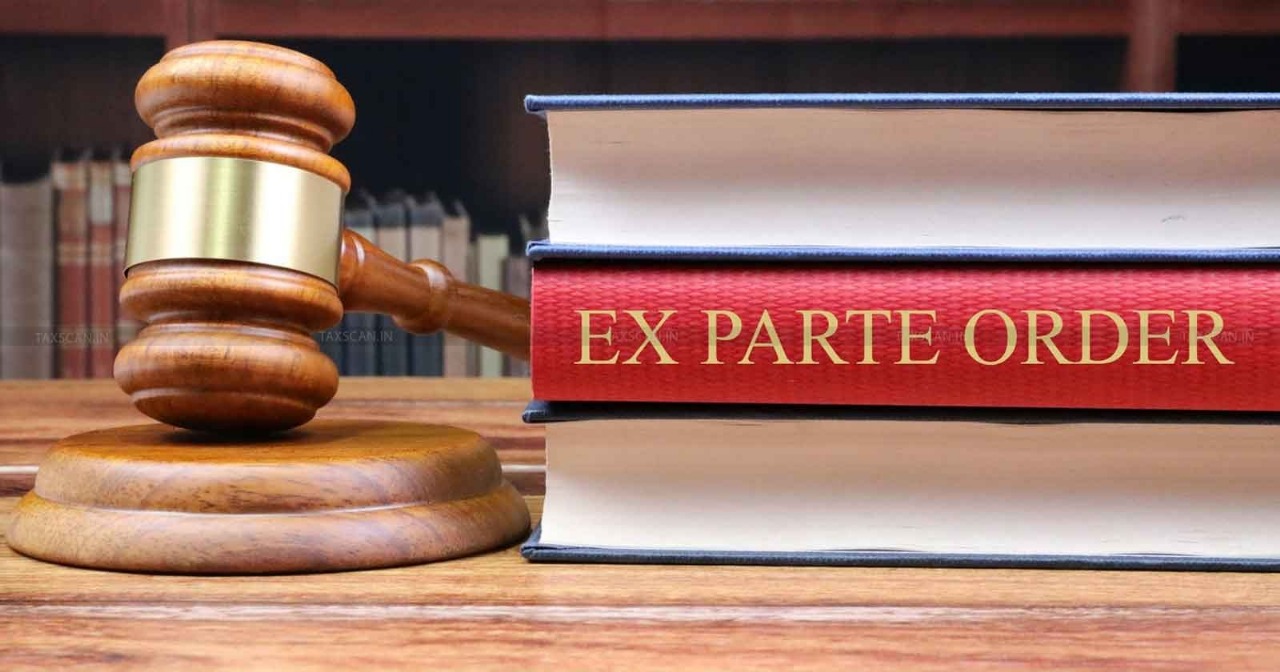Denial of Personal Hearing: Madras HC Sets aside GST S. 73 and 74 Orders on 10% Pre-deposit instead of Usual 25% [Read Order]
If a taxpayer does not respond to notices sent through one mode, the officer must explore other modes of service under Section 169(1) of the GST Act, preferably Registered Post (RPAD), to ensure effective delivery and compliance with the law
![Denial of Personal Hearing: Madras HC Sets aside GST S. 73 and 74 Orders on 10% Pre-deposit instead of Usual 25% [Read Order] Denial of Personal Hearing: Madras HC Sets aside GST S. 73 and 74 Orders on 10% Pre-deposit instead of Usual 25% [Read Order]](https://images.taxscan.in/h-upload/2025/07/08/2061424-denial-of-personal-hearing-personal-hearing-hearing-madras-hc-madras-hc-sets-aside-gst-taxscan.webp)
The Madras High Court has set aside GST ( Goods and Services Tax ) orders issued under Section 73 and 74 of the GST Act without providing proper hearing opportunity on 10% pre-deposit instead of the usual mandatory deposit of 25%.
The petitioner, Tvl. Evershine Industries had voluntarily cancelled its GST registration in 2022, after which the tax department continued to upload all notices and communications solely on the GST common portal under the “View Additional Notices and Orders” tab.
The petitioner submitted that it was unaware of these notices and consequently failed to file replies within the stipulated time.
The counsel for the petitioner, Mr. Viyyash Kumar, for Mr. Rupesh Sharma challenged 6 GST ex parte orders of the assessee/petitioner. In the first writ petition. The 1st writ petition challenged Section 73 order and Summary order dated 12/04/2024.
Understanding Common Mode of Tax Evasion with Practical Scenarios, Click Here
 Also Read:At Least One GST Reminder Must Be Sent via RPAD Before Passing Ex-Parte Order : Madras HC [Read Order]
Also Read:At Least One GST Reminder Must Be Sent via RPAD Before Passing Ex-Parte Order : Madras HC [Read Order]
Further the second, third, fourth and the fifth writ petition challenged Section 74 order and summary order dated 5th June 2024, 22nd December 2022, 22nd February 2024 and 10th May 2025 respectively. Finally, the sixth petition challenged the Section 73 order and summary order dated 10th may 2025.
After hearing the matter, Justice Krishnan Ramasamy observed that although uploading notices on the portal constitutes valid service under GST law, repeated non-response should have prompted the officer to use alternative modes of service prescribed under Section 169 of the CGST Act such as Registered Post Acknowledgment Due (RPAD) to ensure effective delivery and prevent unnecessary litigation.
The bench observed that “Merely passing an ex parte order by fulfilling the empty formalities will not serve any useful purpose and the same will only pave way for multiplicity of litigations, not only wasting the time of the Officer concerned, but also the precious time of the Appellate Authority/Tribunal and this Court as well.”
The Court noted the submission of the petitioner’s counsel that the petitioner had voluntarily cancelled its GST registration. In such circumstances, all subsequent communications ought to have been sent to the email address provided by the petitioner.
Understanding Common Mode of Tax Evasion with Practical Scenarios, Click Here
However, the respondent ( GST department )failed to do so, resulting in the impugned order being passed without affording any opportunity for a personal hearing, a clear violation of the principles of natural justice.
Accordingly, the Court quashed all six impugned orders and directed the tax authority to accept the petitioner’s payment of 10% of the disputed tax within four weeks, to serve fresh notices through valid means, and to grant a clear opportunity for the petitioner to submit replies and appear for a personal hearing. The department was directed to pass fresh orders on merits after hearing the petitioner.
The Madras High Court usually remands petitions against orders issued without holding a hearing in person in mandatory deposit of 25% of the tax in question. However, in this instance, the court set the pre-deposit at 10% because the department did not try to serve notices using any other required method, and the assessee had not replied to letters and orders posted on the portal following the cancellation of its GST registration.
 Also Read:At Least One GST Reminder Must Be Sent via RPAD Before Passing Ex-Parte Order : Madras HC [Read Order]
Also Read:At Least One GST Reminder Must Be Sent via RPAD Before Passing Ex-Parte Order : Madras HC [Read Order]
Support our journalism by subscribing to Taxscan premium. Follow us on Telegram for quick updates


